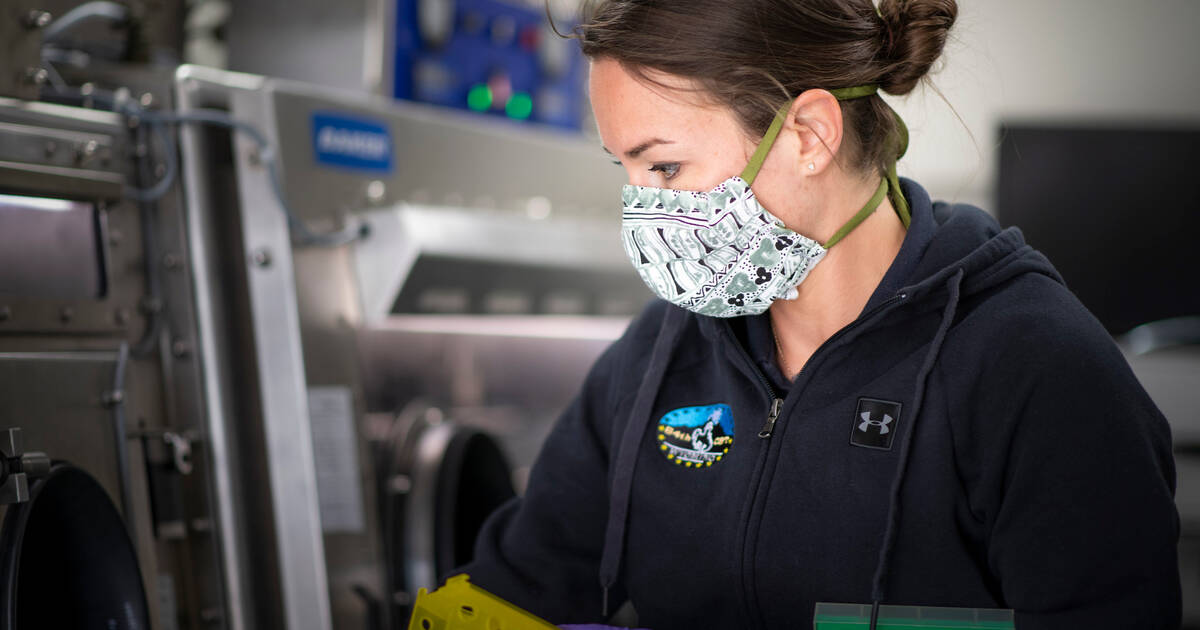
Everyone has been talking about COVID-19 antibody tests, sometimes called serology testing.
They've been making headlines for months with promises of "immunity passports"and being the key to reopening of cities faster. They're also being used for testing population immunity and informing vaccine development.
But before you jump on the antibody testing wagon and order one online here's what you need to know about them.
Are antibody tests available in Toronto?
Yes. Health Canada has approved five antibody tests specific to COVID-19 infection. The first one was approved in May, however, it's worth noting that the test isn't widely available right now.
Although this may change as the government re-evaluates the province's testing strategy.
Who can get one?
If you have enough money anyone can get one. Private health insurer Medcan has been offering antibody testing since July for $200 to $400, depending on insurance coverage.
But, unfortunately for anyone who's not willing to shell out that kind of cash, OHIP is only covering antibody tests if you fall under two categories.
According to Public Health Ontario, only people who have current severe symptoms and have a strong clinical suspicion of COVID-19 infection but have tested negative to the swab test or children with multisystem inflammatory syndrome (MIS-C) may need to get an antibody test.
But testing for these patients requires consultation and approval by the testing laboratory.
What's the test do?
Unlike the swab test that's available at all the testing centres, antibody testing won’t tell you if you have an active infection. Instead, the blood test can help identify if you have been previously exposed to COVID-19.
How does antibody testing work?
In order for our immune system to have a response, a molecule known as an antigen needs to enter our body, which then triggers the production of antibodies to that specific antigen.
An antibody is a type of protein called immunoglobulin, and it binds to an antigen. Humans have five different types: IgG, IgM, IgA, IgE and IgD.
In the case of COVID-19 antibody tests, SARS-CoV-2, the virus that causes COVID-19, has several known antigens and an antibody test works by looking for the disease specific antibodies within a blood sample.
So to find out if you have COVID antibodies, scientists put your blood in a machine to see if the COVID-specific antibodies bind to COVID-specific antigens.
However, there are some limitations. For example, the IgA antibody is hard to distinguish COVID-19 from other the coronaviruses that cause the common cold. So most of the COVID antibody tests focus on finding IgG or IgM.
IgG antibodies are mostly responsible for the development of long-term immunity and start appearing about two weeks after a COVID infection.
IgM antibodies appear later in COVID infections than they do with other viruses, are less specific than IgG antibodies, and their levels fluctuate more.
How accurate is the test?
Accuracy varies by test. For example, the Abbott antibody test, which is used by Medcan boasts a 100 per cent accuracy 14 days after the onset of symptoms.
But in order for a test to be deemed accurate, it has to be sensitive enough not to miss the antibodies if they’re actually present, but specific enough not to accidentally show a positive result. In other words, the more sensitive and specific the test is the more accurate it is.
However, many scientists caution that the efficacy and accuracy of most of the antibody tests are not up to clinical standards. In fact, there are more than 150 tests on the market, but the majority have not been approved by regulatory bodies like the FDA or Health Canada.
And even ones that were initially approved by the FDA weren't properly reviewed for efficacy and safety.
What does it mean if you test positive?
If the test is accurate it means you were exposed to COVID-19 and your immune system created antibodies to the virus. This doesn't mean you had coronavirus or are immune to it.
Scientists also still don't know how long immunity might last. There have been some accounts of people being reinfected even after having COVID-19.
What does it mean if you test negative?
This means you either haven't been exposed to the virus or your body hasn't developed antibodies to COVID-19 yet.
Further, evidence shows that antibodies for COVID might only last a few months, so it could just be that there isn't a high enough concentration of the antibodies in your blood sample.
Should you get an antibody test?
It depends. If you're contributing to furthering research then yes, as you would be helping add to our understanding of COVID-19.
For example, the Canadian Blood Services are currently running a seroprevalence study to learn more about COVID-immunity as well as to see how widespread the disease is across Canada.
However, if it's just for curiosity's sake, many experts are advising against it — at least until the science is more developed.
"We don’t really know if a positive test means you’re protected," Dr. Angela M. Caliendo, a testing expert at Brown University’s Alpert Medical School, told The New York Times. "If you were sick back in March, you probably don’t have antibodies any more; and if you were only mildly sick, you may not have gotten antibodies."
She also cautioned: "if you live in a low-prevalence area, you have a much higher likelihood of getting a false-positive test, meaning you may think you are protected but you aren’t."
by Misha Gajewski via blogTO

No comments:
Post a Comment